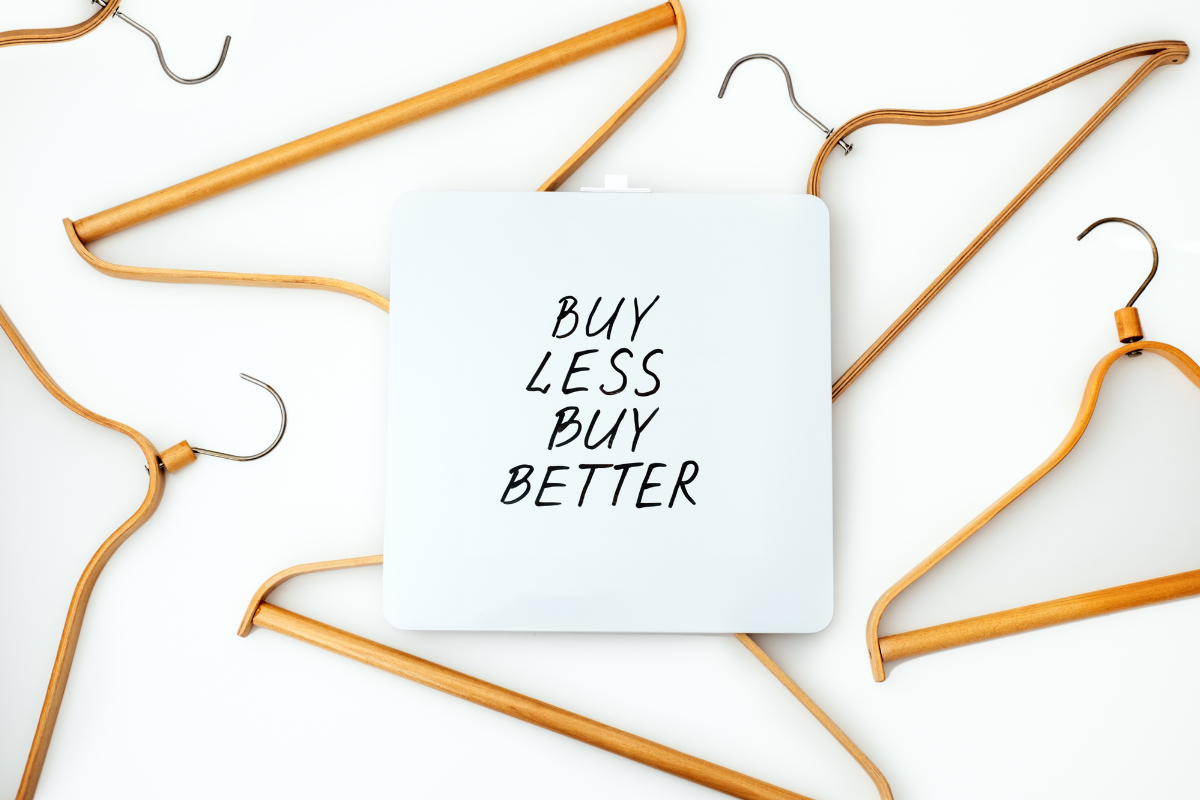Shop sustainably has evolved into a pivotal practice in our modern world, demanding a shift in consumer mindset and behavior. As consumers, our choices profoundly impact the environment, social dynamics, and global economy.
Shopping sustainably involves a conscious effort to consider the environmental, ethical, and social implications of our purchases.
Example of shop sustainably
One example of this is our sandwich wrappers reusable, the Boc’n’Roll, an innovative reusable food wrap that helps reduce the waste of plastics and disposable packaging. This practical alternative to aluminum foil or plastic film allows you to wrap sandwiches, fruits or snacks in a safe and sustainable way, being a practical option for those looking to reduce their environmental footprint in their daily eating habits.
What can we do to practice this type of purchasing?
In today’s introduction to sustainable shopping, we’ll explore various strategies, principles, and practical tips that guide us toward making environmentally friendly and socially responsible choices while navigating the marketplace. This journey involves understanding the lifecycle of products, supporting ethical and transparent businesses, reducing waste, and embracing eco-friendly alternatives.
By delving into this multifaceted approach to shopping, we aim to empower individuals with the knowledge and tools to make informed decisions that not only align with personal needs but also contribute positively to the well-being of our planet and communities. Through adopting sustainable shopping practices, we can collectively work towards a more sustainable, equitable, and environmentally conscious future.
20 ways of shop sustainably
- Research and Prioritize Ethical Brands: Take the time to research brands and companies committed to sustainability. Look for certifications like Fair Trade, B Corp, or labels indicating organic, recycled, or eco-friendly materials. Consider their transparency regarding sourcing, production methods, and social responsibility.
- Quality Over Quantity: Prioritize quality and durability in the items you purchase. Invest in well-made products that are built to last, reducing the frequency of replacements and thereby decreasing waste generation. Choose items with timeless design and functionality.
- Eco-friendly Materials and Production: Opt for products made from sustainable, recycled, or organic materials. Consider the environmental impact of materials used in clothing, electronics, furniture, and other goods. Look for eco-friendly alternatives like bamboo, organic cotton, recycled plastics, or responsibly sourced wood.
- Reduce Single-Use Items: Minimize the use of single-use plastics and disposable items in your daily life. Utilize reusable alternatives such as shopping bags, water bottles, coffee cups, straws, and utensils to reduce waste like our sandwich wrapper and snack bag.
- Support Local and Seasonal Products: Choose locally produced goods to reduce the carbon footprint associated with transportation. Buying seasonal produce supports sustainable agricultural practices and reduces energy consumption related to refrigeration and shipping.
- Mindful Fashion Choices: Avoid fast fashion trends and instead focus on sustainable fashion options. Consider purchasing clothing from ethical brands or opt for second-hand, thrifted, or vintage items. Extend the lifespan of your wardrobe by repairing, repurposing, or donating clothes.
- Practice Mindful Consumption: Before making a purchase, assess whether it’s a necessary and thoughtful addition to your life. Borrow, rent, or share items that are infrequently used instead of buying new ones.
- Recycling and Upcycling: Engage in proper recycling practices for materials that can be recycled. Embrace upcycling by repurposing old or unused items into creative and functional products, giving them new life and reducing waste.
- Consider Product Packaging: Pay attention to the packaging of products and choose items with minimal or eco-friendly packaging. Avoid excess packaging and opt for products packaged in recyclable or biodegradable materials.
- Continuous Education and Advocacy: Stay informed about sustainability issues, certifications, and eco-friendly practices. Educate yourself about the impact of consumer choices and advocate for transparency and sustainable practices from brands and companies.
- Embrace Minimalism and Conscious Consumption: Adopt a minimalist approach by focusing on purchasing only what you genuinely need and value. Prioritize experiences over material possessions, and consider the environmental impact of every purchase, aiming for mindful consumption.
- Explore Circular Economy Initiatives: Support businesses or initiatives that promote a circular economy, which aims to minimize waste by keeping products and materials in use for as long as possible. Look for companies that offer repair services, product take-back programs, or use recycled materials in their production.
- Choose Energy-Efficient Appliances and Electronics: When buying new appliances or electronics, opt for energy-efficient models with high Energy Star ratings. These products consume less energy during use, reducing your carbon footprint and energy bills.
- Shop Second-hand and Swap Items: Explore thrift stores, consignment shops, and online platforms for second-hand items. Participate in swap events with friends or communities to exchange clothes, books, toys, or household items, giving them a new life instead of purchasing new ones.
- Support Sustainable Food Choices: Prioritize sustainable food options by choosing organic, locally grown produce, supporting farmers using eco-friendly practices. Reduce food waste by meal planning, composting food scraps, and supporting initiatives that distribute surplus food to those in need.
- Opt for Renewable Energy-Powered Products: Consider purchasing products and services from companies that commit to using renewable energy sources in their manufacturing processes or operations. Supporting businesses that prioritize renewable energy contributes to a cleaner and more sustainable energy landscape.
- Invest in Multi-functional and Versatile Products: Look for items that serve multiple purposes or have versatile designs. Choosing multi-functional products reduces the need for buying several items, minimizing consumption and waste generation.
- Support Ethical Supply Chains: Research and choose products from companies that ensure fair wages, safe working conditions, and ethical treatment of workers throughout their supply chains. Supporting ethical supply chains promotes social responsibility and contributes to a fairer and more equitable global economy.
- Engage in Community Swaps or Sharing Platforms: Participate in community-based swapping events or utilize sharing platforms where individuals can lend or share items. These initiatives promote a circular economy, reduce individual consumption, and foster a sense of community collaboration.
- Consider the Lifecycle of Products: Evaluate the entire lifecycle of products before purchasing. Choose items that are easily repairable, recyclable, or have minimal environmental impact throughout their entire lifespan, from production to disposal. Making informed choices about product lifecycle aids in reducing waste and resource depletion.
By incorporating these sustainable shopping practices into your lifestyle, you contribute to the larger movement towards sustainability. Your choices as a consumer have the power to drive positive change, support ethical businesses, and encourage a shift towards a more environmentally conscious society.











